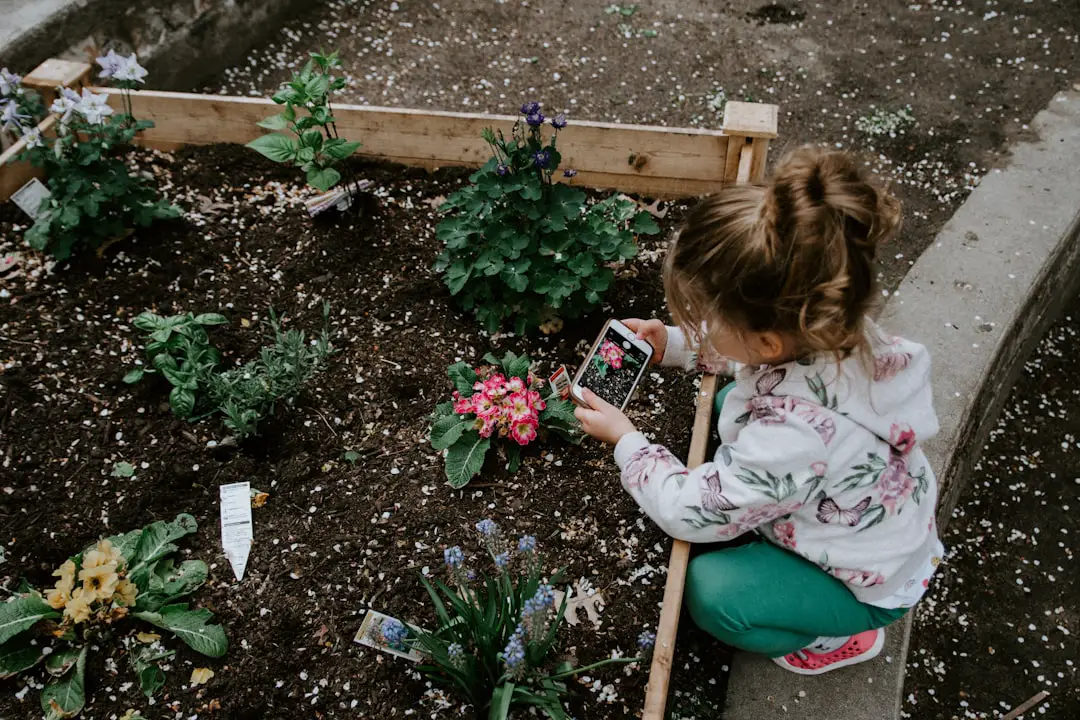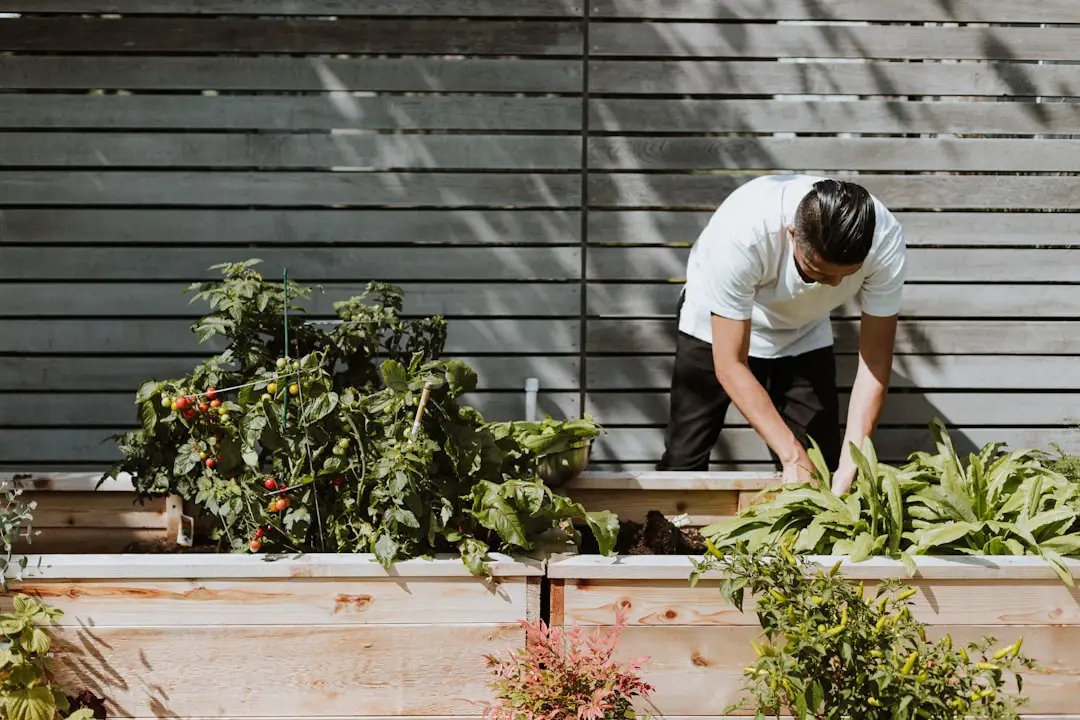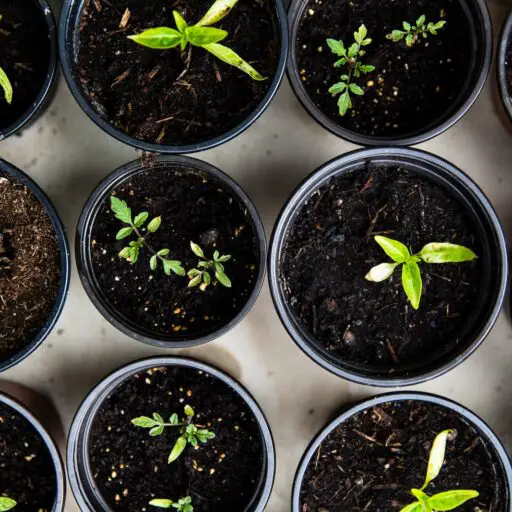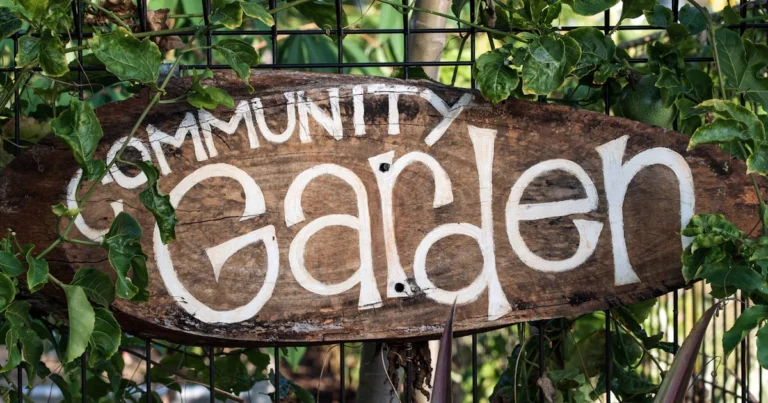Support our educational content for free when you purchase through links on our site. Learn more
Quick Answer: Community gardens promote healthy eating by increasing access to fresh and nutritious foods, educating community members about food and nutrition, fostering a sense of community, and supporting a more resilient food system. They also offer job training and economic opportunities for low-income individuals and families.
Are you looking for ways to improve your diet and make healthier food choices? Look no further than your local community garden! Community gardens are not just beautiful green spaces; they are also powerful tools for promoting healthy eating and improving overall well-being. In this article, we will explore how community gardens can transform the way you eat and help you lead a healthier lifestyle. So grab your gardening gloves and let’s dig in!
Table of Contents
- Quick Answer
- Quick Tips and Facts
- Background: The Power of Community Gardens
- How Community Gardens Promote Healthy Eating
- FAQ
- Conclusion
- Recommended Links
- Reference Links
Quick Tips and Facts
- Community gardens increase access to fresh and nutritious foods.
- They educate community members about food and nutrition.
- Community gardens foster a sense of community and social cohesion.
- They support a more resilient food system.
- Community gardens offer job training and economic opportunities.
- Studies have shown that community gardeners are more likely to consume recommended daily servings of fruits and vegetables. ✅
Background: The Power of Community Gardens

Community gardens have been around for centuries, but their importance has grown significantly in recent years. These gardens are spaces where individuals, families, and communities come together to grow their own food, connect with nature, and build strong relationships with their neighbors. Community gardens are not only about gardening; they are about creating vibrant and healthy communities.
How Community Gardens Promote Healthy Eating
1. Increasing Access to Fresh and Nutritious Foods
One of the most significant ways community gardens promote healthy eating is by increasing access to fresh and nutritious foods. In many urban areas, access to fresh produce is limited, especially in low-income neighborhoods. Community gardens provide a solution to this problem by bringing fresh fruits and vegetables directly to the community.
Studies have shown that community gardeners are more likely to consume the recommended daily servings of fruits and vegetables. By growing their own food, community gardeners have easy access to fresh produce, which encourages them to incorporate more fruits and vegetables into their diets. This can lead to improved nutrition and better overall health. ✅
2. Educating Community Members about Food and Nutrition
Community gardens are not just about growing food; they are also about educating community members about food and nutrition. Many community gardens offer workshops, classes, and educational programs that teach people how to grow, harvest, and prepare their own food.
By participating in these educational activities, community members gain valuable knowledge about healthy eating, sustainable agriculture practices, and food preservation techniques. This knowledge empowers individuals to make informed choices about their diets and encourages them to adopt healthier eating habits. ✅
3. Fostering a Sense of Community
Community gardens are more than just plots of land; they are vibrant and inclusive spaces that foster a sense of community. When people come together to garden, they form connections with their neighbors, share gardening tips and tricks, and build lasting friendships.
This sense of community creates a supportive environment where individuals can learn from one another, share resources, and inspire each other to make healthier food choices. Community gardens become gathering places where people can socialize, relax, and enjoy the benefits of nature. ✅
4. Supporting a More Resilient Food System
Community gardens play a crucial role in supporting a more resilient food system. By growing their own food, community gardeners reduce their reliance on large-scale industrial agriculture, which often relies on harmful pesticides and contributes to environmental degradation.
Community gardens promote sustainable agriculture practices such as organic gardening, composting, and water conservation. These practices help protect the environment, improve soil health, and reduce the carbon footprint associated with food production. By supporting local food production, community gardens contribute to a more sustainable and resilient food system. ✅
5. Offering Job Training and Economic Opportunities
In addition to promoting healthy eating, community gardens also offer job training and economic opportunities, particularly for low-income individuals and families. Many community gardens partner with local organizations to provide job training programs that teach valuable skills such as gardening, landscaping, and food preparation.
These job training programs not only provide individuals with employment opportunities but also equip them with the skills they need to succeed in the growing field of sustainable agriculture. By offering economic opportunities, community gardens help improve the financial well-being of individuals and families, making healthy eating more accessible to all. ✅
FAQ

How do community gardens help health?
Community gardens help improve health in several ways. They increase access to fresh and nutritious foods, educate community members about food and nutrition, foster a sense of community, support a more resilient food system, and offer job training and economic opportunities. By promoting healthy eating and providing a supportive environment, community gardens contribute to overall well-being.
Read more about “Why Community Gardens are Beneficial? … 🌱”
How does gardening influence our access to healthy food?
Gardening influences our access to healthy food by allowing us to grow our own fruits, vegetables, and herbs. By gardening, we have direct control over the quality and freshness of the food we consume. Gardening also reduces our reliance on large-scale industrial agriculture, which often prioritizes quantity over quality. By growing our own food, we can ensure that we have access to fresh and nutritious produce.
How can community gardens make access to healthy options more equitable?
Community gardens can make access to healthy options more equitable by providing fresh produce to low-income neighborhoods and food deserts. By establishing community gardens in these areas, residents have the opportunity to grow their own food and have easy access to fresh fruits and vegetables. This helps bridge the gap between communities with limited access to healthy options and those with more resources.
Do community gardens reduce food waste?
Yes, community gardens can help reduce food waste. By growing their own food, community gardeners have better control over the quantity of produce they harvest. This means they can harvest only what they need, reducing the likelihood of food waste. Additionally, community gardens often promote sustainable practices such as composting, which further reduces food waste by turning organic matter into nutrient-rich soil.
Read more about “How to Create a Sustainable Community Garden …”
Conclusion

Community gardens are powerful catalysts for promoting healthy eating and improving overall well-being. By increasing access to fresh and nutritious foods, educating community members about food and nutrition, fostering a sense of community, supporting a more resilient food system, and offering job training and economic opportunities, community gardens have the potential to transform the way we eat and live.
So why not get involved in your local community garden? Not only will you have access to fresh and healthy produce, but you’ll also be part of a vibrant and supportive community. Together, we can grow a healthier future!
Recommended Links
- Benefits of Community Gardens
- Community Garden Events
- Community Garden Policies
- Therapeutic Benefits of Gardening
- Garden Design Ideas
- How Community Gardens Can Help Alleviate Food Insecurity 2023




